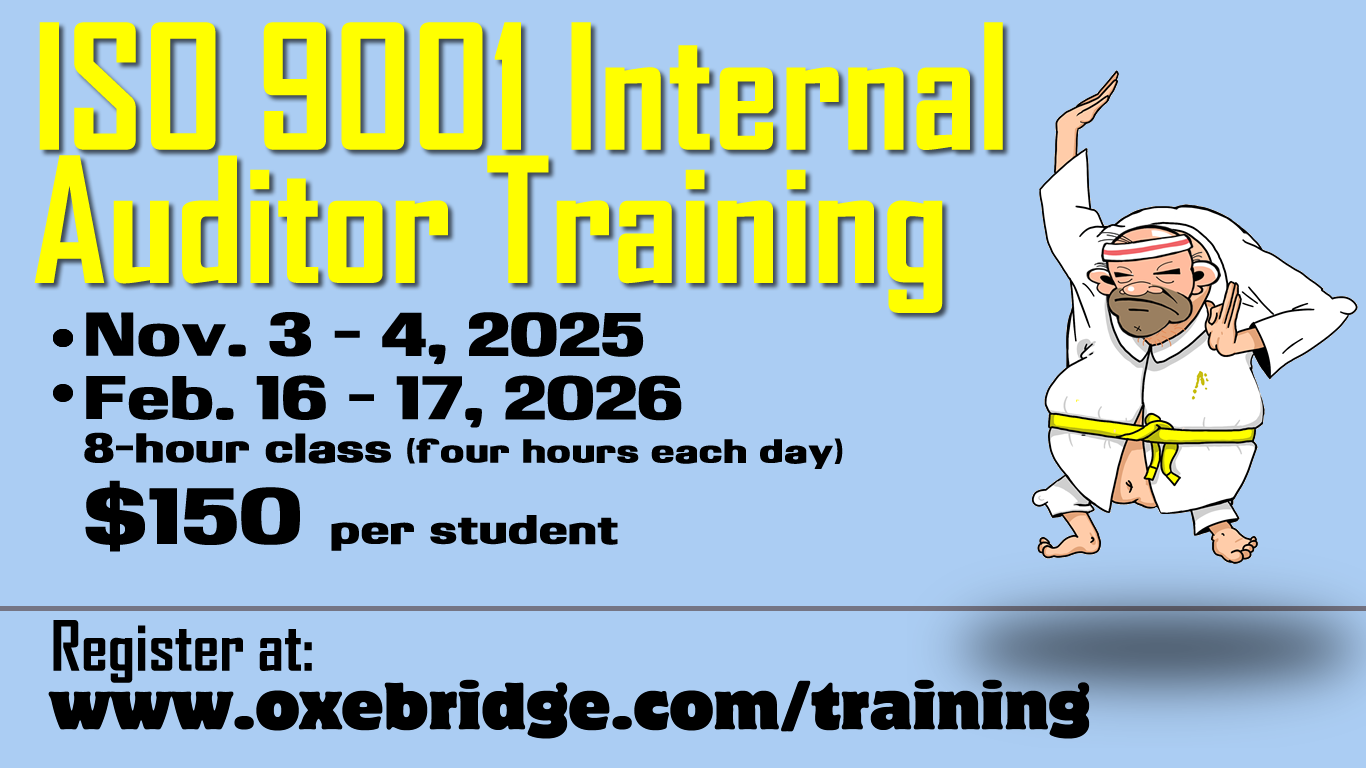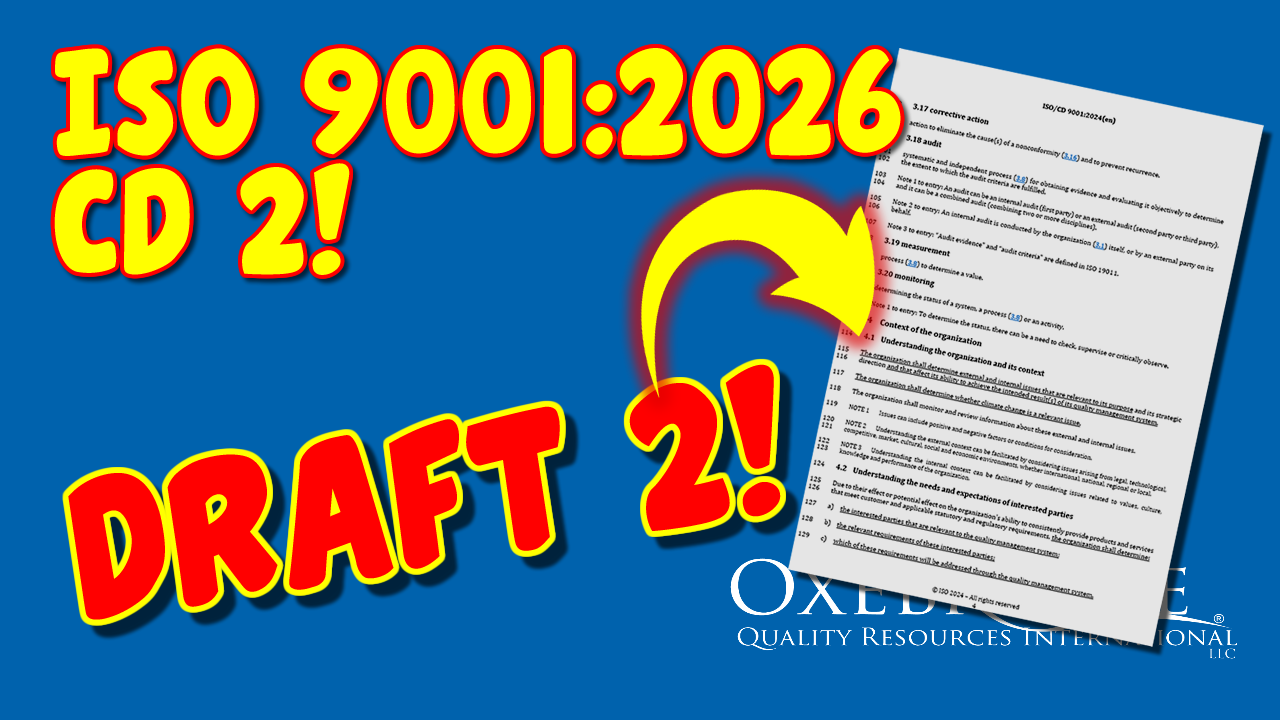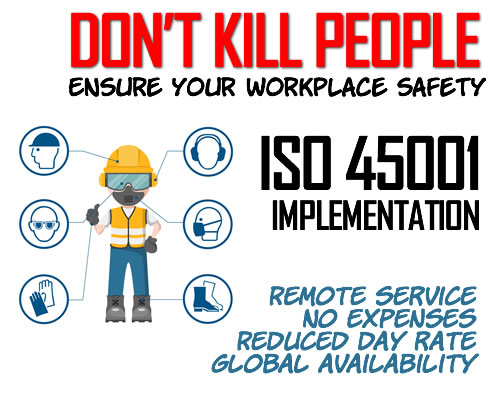The ISO 9001 certification body (CB) community has always been short-sighted, opting for the quick buck at the expense of the long-term financial stability or ensuring the validity of certifications. In the 2000’s we saw a number of CBs go out of business, merge, or be sold as a result of their inane policies.
Now the CBs are at it again, trying to snatch up a few extra dollars from each client using the new ISO 9001:2015 standard as an excuse. The CBs are artificially inflating their audit days to “upgrade” systems to the new standard, which is something completely and utterly unnecessary. The audit man-days have not changed from those required to audit ISO 9001:2008, so there is no rule or behind-the-scenes procedure which requires them to add a single minute to an audit of ISO 9001:2015. This is yet another quick cash-grab, and many uninformed customers will take it on the chin.
The CBs make various claims about having to use additional time to look at “new” records, etc., but it makes no sense. As reported earlier, Bureau Veritas rep Paul Kunder, who was on TC 176, argued that CBs will have to add days for document review, because the new standard requires less documentation. Yes, you read that right: he wants to add time to review less documentation. And that makes sense to him and his ilk.
A CB has a set amount of time to review records — period — and since they “sample” them, it doesn’t matter if they are new or not. What this seems to hint at is that during the rest of the time, they are doing an inadequate review of records, so once a new standard comes out, they are suddenly forced to actually do their jobs. This still doesn’t justify the extra time, or making the customers pay for it.
In reality, the move is to offset the CBs expenses that they have incurred in updating their own procedures to the new rules and requirements for auditing under ISO 9001:2015. They may have had to hold a few training sessions with auditors (however unlikely); perhaps they had to update their documentation to swap out “2008” with “2015.” They did have to provide their Accreditation Body with a transition plan, so they need to cover the time it took to write that document. They are just trying to recoup their costs by passing it down to their customers, but it’s grossly inflated, and wholly unfair. The fact that they lie about their reasoning just makes it all the more despicable.
But history shows the registrars are nearly always on the wrong side of history, and this will prove true yet again. Looking back at the transitions caused by the last two updates to ISO 9001 (in 2000 and 2008) we find that there is always a precipitous drop in ISO 9001 certifications right at the three-year sunset mark, when the old standard lapses and all certifications must be updated to the new version. We find that at that three-year mark, companies reject the new standard, refuse to pay the necessary costs associated with updating, and simply let their old certifications lapse. Some of those companies come back, years later, but many others do not. We can expect to see that occur again, with the worse drop occurring in late 2017 and throughout 2018. Factor in the global frustration that people are expressing with the new standard’s wacky requirements, like “risk-based thinking,” and you have the setting for a massive defection the likes of which the world has never seen.
So this is a time for CBs to do whatever they can to prevent the inevitable client hemorrhage, by showing good will, acting fairly, and improving their sense of concern for their customers. Instead, however, they seem dead set on doing the opposite, and furthering their reputation as the industry scumbags. If CBs artificially add extra costs — and the average increase appears to be an additional day of auditing at the industry average of $1,300 plus expenses — this will be yet another reason for companies to let their ISO 9001 lapse. This will then result in yet another drop in ISO 9001 certificates worldwide, resulting in a decline of CB customers and thus a decline in CB revenue. By 2019 the CB market will again face crisis, and we will see the remaining smaller players go out of business entirely, and the medium-sized players merge or get bought by the monsters of BSI or NSF or whomever is left standing.
So if you’re a CB rep reading this (as unlikely as that is), here’s my advice: if you want to save your client base in the long run do not add additional days for ISO 9001:2015 upgrade audits. You have no justification for doing so, and this will only generate negative feelings with your customers, and eventually result in further erosion of your company’s revenue, and the certification scheme as a whole. Then, market the heck out of your decision, to humiliate the other CBs and show that you’re not a craven opportunist like your colleagues. You may see an uptick in transfer clients as a result.
Will they listen? Of course not. CB sales reps have a unique common trait in that despite their near universal lack of qualifications, they simultaneously are endowed with a massive sense of smugness. They will ignore all data that shows they are heading towards the cliff, and soldier on by ripping off their customers in whatever way they can get away with. Frankly, if they do go out of business, it can’t happen fast enough. But they shouldn’t artificially inflate their pricing in the process.
Christopher Paris is the founder and VP Operations of Oxebridge. He has over 35 years’ experience implementing ISO 9001 and AS9100 systems, and helps establish certification and accreditation bodies with the ISO 17000 series. He is a vocal advocate for the development and use of standards from the point of view of actual users. He is the writer and artist of THE AUDITOR comic strip, and is currently writing the DR. CUBA pulp novel series. Visit www.drcuba.world








